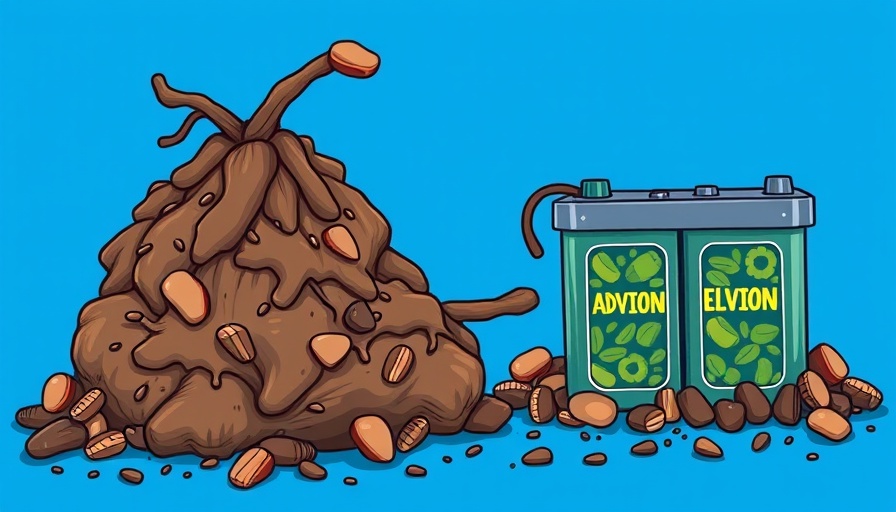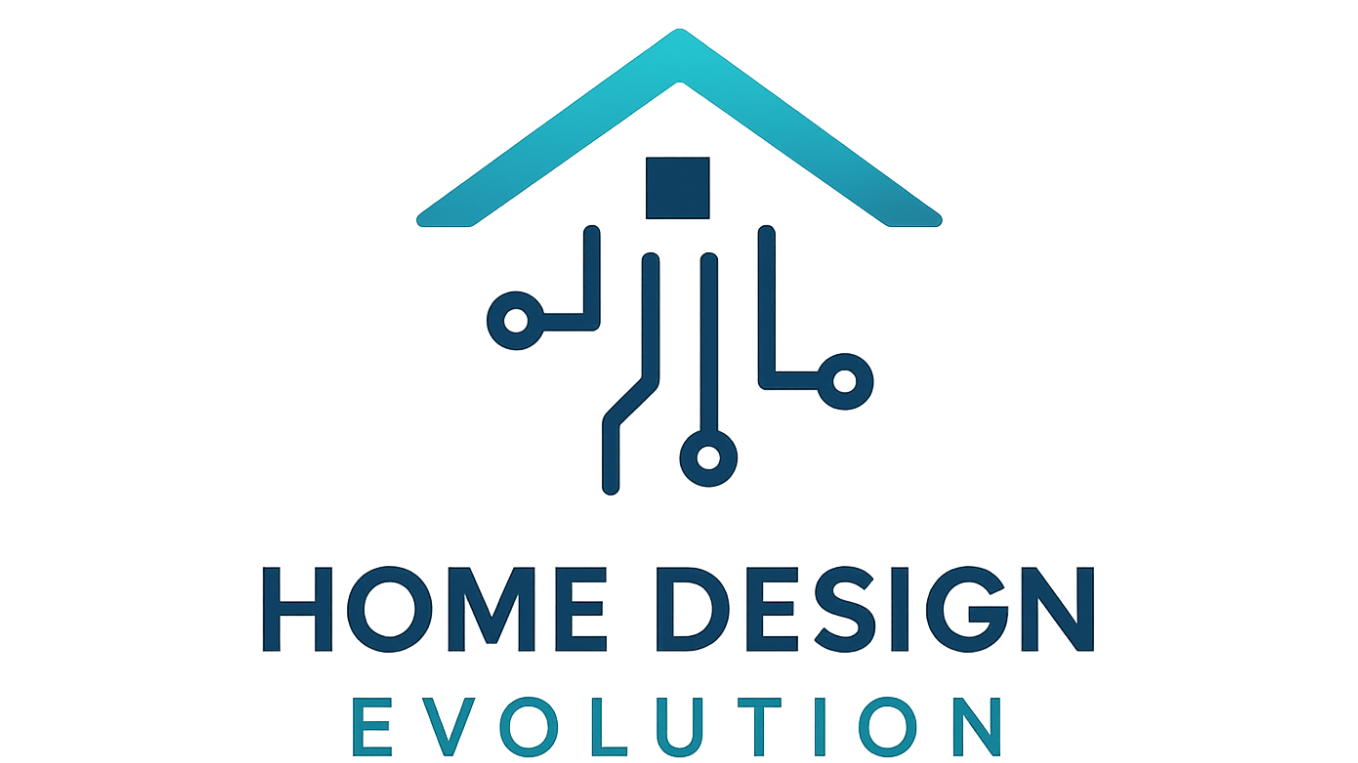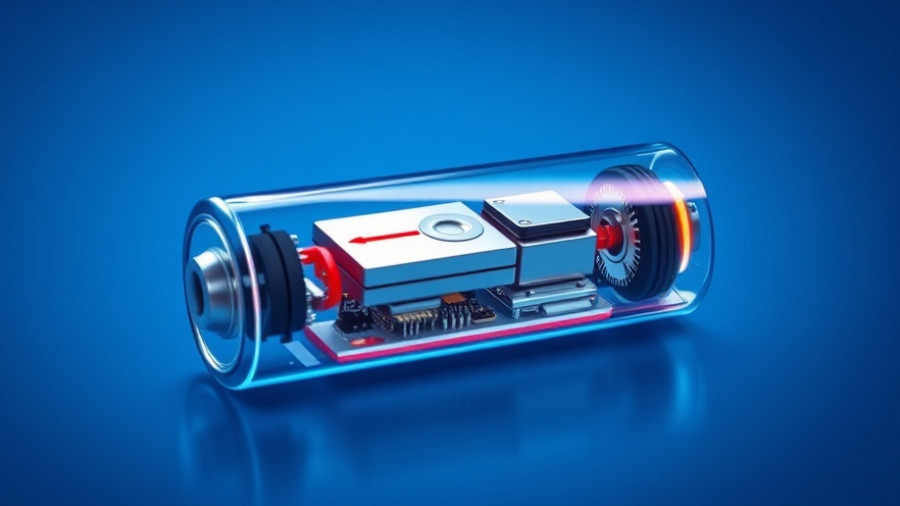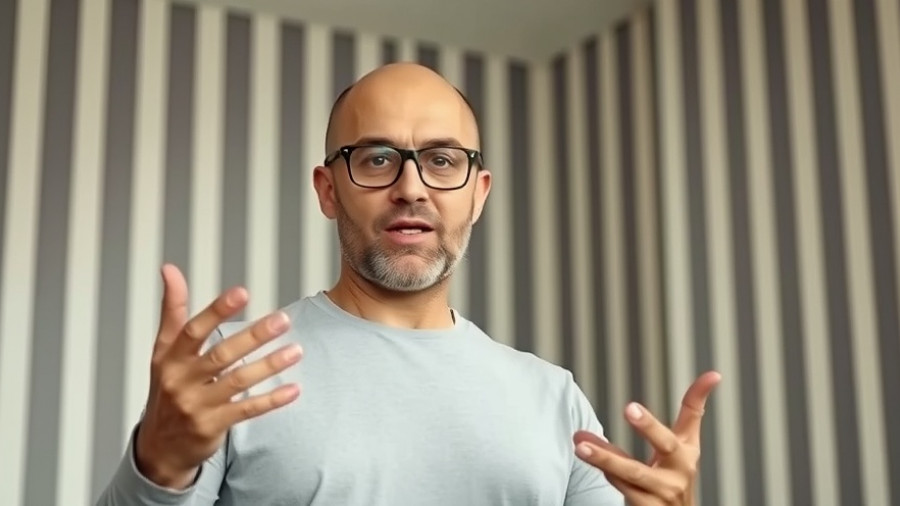
Turning Waste into Wealth: The Circular Economy Revolution
In today’s world, the conversation around sustainability is evolving. Long gone are the days when we considered waste as merely refuse. Now, engineers and researchers are innovating ways to transform agricultural, industrial, and even human waste into valuable resources. This movement is directly tied to the concept of the circular economy, where the focus is on reusing materials and minimizing waste to create a more sustainable future.
In Why Nothing Is Truly Waste Anymore, the discussion dives into current innovations in waste management, prompting a closer look at how these technologies can reshape our daily lives.
Innovations in Waste Management: What’s Possible?
The modern understanding of waste management has expanded significantly. Instead of merely discarding items, we are beginning to see the potential value in items like cow manure and urine. For instance, cow manure is emerging as a fantastic substitute for petrochemicals used in plastics and textiles. By utilizing the cellulose — the most abundant natural polymer on Earth — found abundantly in cow dung, we can create biodegradable products without the need for resource-intensive processes that typically deplete forests.
Interestingly, both cow manure and human urine are now being explored for their utility in creating stronger, more sustainable materials. These innovations challenge our traditional views of waste, emphasizing that what was once considered trash could be part of a clever, eco-friendly solution.
Bioplastics and Batteries: Waste that Powers Our Future
Recent advancements reveal that even materials deemed unsightly can produce high-tech solutions. Researchers have developed methods to extract cellulose nanofibrils from cow manure. These tiny fibers, with tensile strength surpassing many conventional materials, can contribute to the creation of biodegradable plastics, helping alleviate the severe environmental concerns linked with traditional plastic manufacturing.
Moreover, innovations extend beyond plastics. Companies like Evermore Technologies are utilizing cow dung as a binder in lithium-ion batteries. This cleverly sourced material promises to provide both performance and lower emissions than conventional battery production methods. It’s a prime example of how waste materials can enter the tech space, paving the way for a greener future.
Cement: The Built Environment Goes Green
Concrete, a staple in construction, poses significant challenges due to its high carbon footprint. Fortunately, innovations are surfacing, where even urine is making its mark in the construction industry. Researchers have successfully developed biocement using the urea found in urine. This process not only circumvents the energy-intensive kilns typically required in cement production but also contributes to solidifying the circular economy by utilizing waste that would otherwise be discarded.
This approach represents not just a technological advancement but a cultural shift in how we perceive and value waste in our ecosystem.
From Farm to Space: Waste as a Resource
The connection between agriculture and new-age sustainability innovations is evident. By rethinking traditional practices revolving around waste, farmers can not only reduce environmental impact but also create valuable byproducts that enhance our lives in unexpected ways. Integrated systems that convert waste into resources can lead to a healthier environment and a more robust economy.
This can empower homeowners and communities to think critically about waste practices while embracing trends that promote sustainability in their daily lives.
Why Should We Care?
It’s critical for us to recognize the value inherent in what we often throw away. The growing focus on sustainability and environmental responsibility speaks to the hearts of many homeowners, particularly those in the 35-55 age range eager to engage with innovative technologies that impact their daily lives. Homeowners can actively participate in this sustainable revolution by integrating smarter waste management techniques, supporting bioplastics, and embracing DIY projects that use repurposed materials, reducing both environmental footprints and operational costs.
In conclusion, by leveraging new technologies in waste transformation, we stand on the edge of a greener era where waste is celebrated as a resource, not discarded as trash. This shift empowers individuals and communities alike to participate actively in shaping a more sustainable future.
If you’re inspired by the potential to transform waste into useful resources, consider exploring new sustainable practices in your home. Together, we can contribute to innovations that will define the future of our planet.
 Add Row
Add Row  Add
Add 



Write A Comment